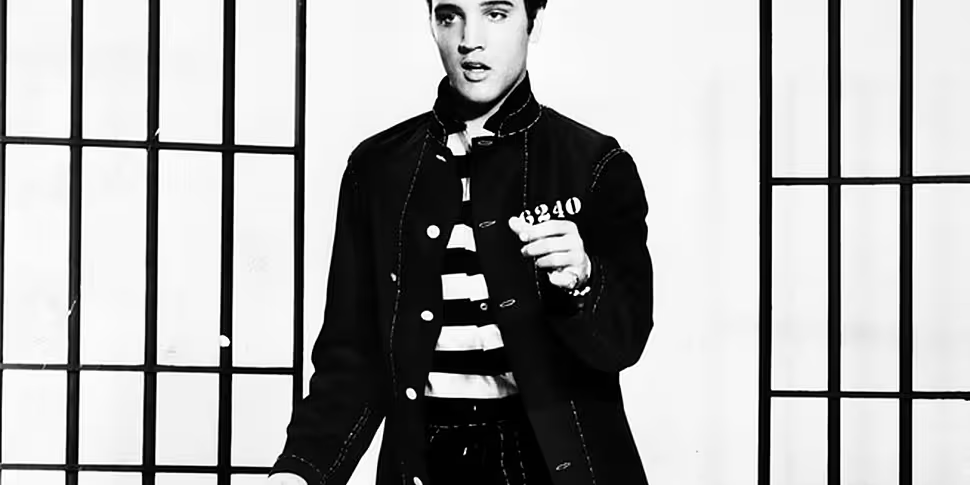On today’s The Right Hook, George meets Róisín Fitzpatrick, who came very close to death the day after her 35th birthday, when she suffered from a severe brain haemorrhage.
While on the brink of losing her life, Róisín says she was surrounded by a radiant light, and that her consciousness was wrapped by an energy of pure, unconditional love – all while her body was being treated at the intensive-care unit at Dublin’s Beaumont Hopsial.
Now, a decade on, she has written a book on her experiences and talks to George Hook about mortality, the afterlife and what it’s like living after coming so close to death. Tune in live to The Right Hook today at 6.20pm: http://www.newstalk.com/player/
Much of our history is defined by the deaths of our political and cultural leaders, but what about the ones that almost happened? Brushes with death and near-misses could have considerably altered our timeline and inexorably changed the world as we know it. Here are four near-death experiences that could have altered history...
1: A brass button meant we got Handel’s Messiah
The German-born composer might never have debuted his celebrated Messiah in Dublin were it not for the buttons on his jacket.
In 1704, Handel was playing the harpsichord at an opera by his friend Johann Matheson, when an argument broke out over which of them had the right to play and lead the orchestra until the performance was over. Fists started to fly when Matheson struck Handel across the face with a slap, and egged on by the other players, as well as flaring tempers, the two men set out to have a duel in front of the opera house in Hamburg.
Squaring off with swords, Matheson saw his chance to strike and thrust his weapon at Handel’s torso, aiming for his heart.
Instead, he made contact with a brass button on his coat, which deflected the deadly blow and snapped off the point from his sword.
The two composers, witnessing their miraculous survival, embraced each other and cried.
2: Elvis survived a deadly storm by pure luck at the age of one
The city of Tupelo, Mississippi, was rocked by a massive category F-5 tornado in 1936, leaving 233 residents dead and almost levelling every building. One of the survivors, a one-year-old baby, would grow up to become the King, Elvis Presley.
It’s unclear how Elvis managed to survive the battering storm, but reports suggest it was purely the luck of not being in the the path of flying debris. Regardless, the King’s influence on the global music scene cannot be underestimated, and there’s no debating how significantly music and rock and roll would have been affected if its future monarch had died that day in Tupelo.
3: Abraham Lincoln fought a duel to defend his wife’s honour
Honest Abe might never have led the North to victory in a brutal civil war nor helped Daniel Day Lewis win his third Oscar were it not for the bad aim of James Shields.
In 1842, Lincoln’s future wife Mary Todd wrote a scathing letter about Shield, then Illinois’ State Auditor, describing him as "a ballroom dandy, floatin' about on the earth without heft or substance, just like a lot of cat-fur where cats had been fightin'."
Lincoln was obliged to represent his financée when Shields proposed a duel to restore his name, but Lincoln was allowed to name the terms, and set them to give him an advantage.
Firstly, the duel was held in a tiny arena where the participants would be divided by a wooden plank (stepping over the plank would mean forfeiting the duel), and instead of Shields’ preferred pistols, the men would fight with broadswords.
It worked, as his height advantage in the confined space forced Sheilds to see the light and call off the fight – which was Lincoln’s plan all along, as he wrote: "I didn't want the damned fellow to kill me, which I rather think he would have done if we had selected pistols."
4: Karl Marx survived being shot – in the head
At the age of 18, in 1836, Karl Marx was studying at the University of Bonn, and dealing with the near-constant aggression of members of the Borussia Korps, the groups that would go on to spawn the American fraternity system.
The bookish Marx acquired a pistol to defend himself, and quickly found himself in a duel, the outcome of which saw him face-to-face with a trained soldier. He was incredibly lucky to walk away with just a small wound above his left eye, where a bullet grazed him.
Marx was saved by the technology of the day, as early pistols proved to be considerably less reliable and accurate than later models. But if it had been broadswords instead, who knows if there would have been Marxism, Marxist-Leninism and the entire history of the Cold War?









